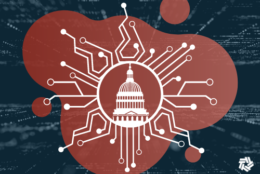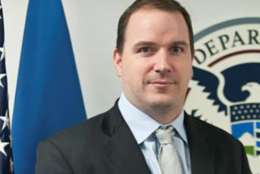Critical infrastructure
-
With more and more critical infrastructure relying on space technology, security of that tech becomes a major concern.
November 09, 2021 -
The critical infrastructure Americans rely on every day for power, transportation, water, connectivity and more has reached a perfect storm of vulnerability.
October 04, 2021 -
Leading tech firms and other businesses made cybersecurity commitments after meeting with President Biden at the White House this week.
August 26, 2021 -
The Coast Guard's latest cyber strategy focuses on growing threats to the U.S. system of ports, waterways, shorelines and other maritime infrastructure.
August 04, 2021 -
Biden administration eyes mandates under new effort to improve critical infrastructure cybersecurity
The administration will develop performance goals for critical infrastructure cybersecurity as part of an effort emphasizing voluntary collaboration, but current and former officials see the potential for federal mandates amid a concerning rash of cyber attacks.
July 28, 2021 -
Researchers at the Pacific Northwest National Laboratory have come up with a cybersecurity software tool that builds on the old notion of honeypots.
June 29, 2021 -
In today's Federal Newscast, the Energy Department and the Cybersecurity and Infrastructure Security Agency are leading a new 100-day effort to improve the cybersecurity of the electric infrastructure.
April 21, 2021 -
Some federal employees are receiving COVID-19 vaccines through their agencies, but for others, they must wait until their state and local governments make doses available.
April 06, 2021 -
In today's Federal Newscast, the departments of Commerce, Defense, Transportation and Homeland Security are on the clock to figure out how best to secure the systems that support global positioning satellites and related critical infrastructure.
February 13, 2020 -
In today's Federal Newscast, the National Security Agency is bringing together its foreign intelligence and cyber defense missions into a new directorate.
July 24, 2019 -
Texas Rep. Michael McCaul's bill would create groups of cyber first responders in the event of a cyber attack on the government or private sector.
June 12, 2019 -
Robert Kolasky, director of the National Risk Management Center, joined Federal Drive with Tom Temin to talk about what they are and how to deal with them.
May 17, 2019 -
The Department of Homeland Security finally secured a name change for its cybersecurity-focused branch, but more importantly, and its chief has laid out a two-year roadmap to bring it up to "full operating capability."
November 16, 2018 -
Chris Krebs of the National Protection and Programs Directorate described the National Risk Management Center as one half of a two-pronged approach to cybersecurity.
October 25, 2018 -
DHS' National Risk Management Center is weighing some heavy questions as it begins to examine how adversaries could disrupt day-to-day life in the U.S.
October 11, 2018













